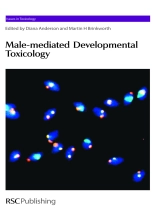The issue of male germ line mutagenesis and the effects on developmental defects in the next generation has become increasingly high profile over recent years. Mutations are thought to be becoming more prevalent as a result of: exposure to chemicals in the environment, anti cancer regimes that use genotoxic agents and assisted conception techniques. In addition to the increasing frequency of mutations in the general population, attention is also being given to the effects of epigenetic events on future generations. Male-mediated Developmental Toxicity discusses these issues comprehensively and includes further analysis on the fundamental mechanisms of mutations. With both clinical and experimental sections, written by leading experts in the field, this book will appeal to both medical practitioners and researchers.
Table of Content
Part One: Introductory Scientific Presentations; Foreword; Chapter 1: Epigenetic Transgenerational Actions Of Endocrine Disruptors Through The Male Germ-Line; Part Two: Heritable Effects in Humans; Chapter 2: Reproductive Outcomes Among Men Treated For Cancer; Chapter 3: Cancer in siblings of children with cancer in the Nordic countries – A population-based cohort study: Paediatric cancer: an indicator of familial cancer risk?; Chapter 4: What Harms The Developing Male Reproductive System?; Chapter 5: Links Between Paternal Smoking and Childhood Cancer; Chapter 6: Metal Effects On The X:Y Ratio In Human Sperm; Chapter 7: Use Of The Sperm Chromatin Structure Assay (Scsa®) As A Diagnostic Tool In The Human Infertility Clinic; Chapter 8: Safety of Sperm For Use In ICSI; Part Three : Animal Models ; Chapter 9 : Male-Mediated F1 Effects In Mice Exposed To Di(2-Ethylhexyl)Phthalate (DEHP); Chapter 10: Prevention of Adverse Effects of Cancer Treatment on the Germline; Chapter 11: Molecular Changes In Sperm And Early Embryos After Paternal Exposure To A Chemotherapeutic Agent; Chapter 12: Transmissible Genetic Risk Causing Tumours in Mice and Humans; Chapter 13: Heritable Effects on DNA Damage Following Paternal F0 Germline Irradiation; Chapter 14: Influence of DNA Methylation and Genomic Imprinting in the Male Germ Line on Pregnancy Outcome; Chapter 15: Information Content Of Ejaculate Spermatozoa And Its Potential Utility In Toxicology And Infertility Based Research Programmes; Part Four: Germline Mutagenesis; Chapter 16: Origin Of Paternal Mutations; Chapter 17: Redox Regulation Of DNA Damage In The Male Germ Line; Chapter 18: Advances In The Direct Measurements Of Partial Chromosomal Duplication, Deletions And Breaks In Human And Murine Sperm By Sperm FISH; Chapter 19: Radiation-induced Transgenerational Instability In Mice; Chapter 20: New Genetic Information Generated By Endogenous Reverse Transcription In Sperm Cells; Chapter 21: Sperm Abnormalities in Exposed Humans; Chapter 22: OESTROGENIC COMPOUNDS AND OXIDATIVE STRESS; Chapter 23: DNA Repair Capacities In Testicular Cells Of Rodents And Man; Chapter 24: Closing Panel Discussion; Subject Index
About the author
The Editors Professor Diana Anderson currently holds the Established Chair at the Department of Biomedical Sciences at the University of Bradford, UK and is Research Co-ordinator for the Department. Professor Anderson joined BIBRA International in 1981 and in 1992, she became Senior Associate and Co-ordinator of External Affairs at BIBRA. She has over 300 publications, has edited/authored 6 books and guest-edited 9 special issues of 4 international journals. She has is Series Editor of books Issues in Toxicology for the Royal Society of Chemistry. As an active Committee member, she has been Vice-President of the Institute of Biology and is Chair of the Scientific Committee of the International Association of Environmental Mutagen Societies and is a consultant for many international organisations, such as the WHO, NATO, TWAS, UNIDO and the OECD. Dr Martin Brinkworth












